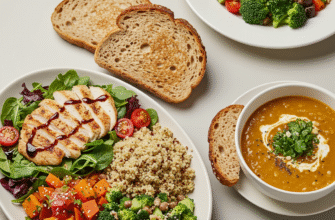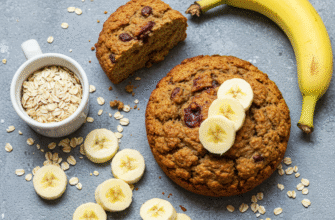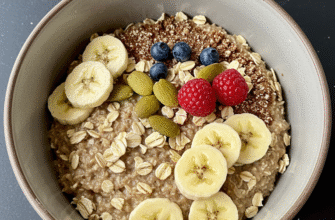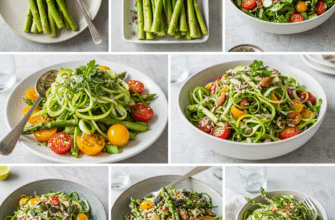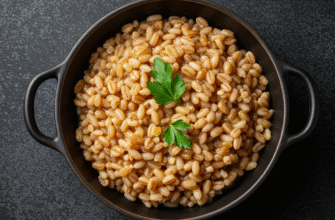Let’s face it, the end of a long day often feels like crossing a finish line you barely had the energy to reach. Your brain feels fuzzy, your body aches, and the last thing you want to do is figure out a healthy meal or resist the siren call of the snack cupboard. When exhaustion sets in, willpower tends to pack its bags and leave. Suddenly, that frozen pizza or bag of chips looks infinitely more appealing than chopping vegetables. It’s a common struggle, and you’re definitely not alone if your healthy habits falter when you’re running on empty.
Why does tiredness derail our best intentions? Part of it is simple biology. When fatigued, our bodies crave quick energy, which often translates to sugary or high-fat foods. Decision fatigue is another culprit. After making countless choices all day long, your brain’s ability to make thoughtful decisions diminishes. Opting for the easiest, most immediately gratifying option becomes the default. It’s not about weakness; it’s about how our brains and bodies cope with low energy reserves.
Tackling Tiredness Head-On: Preparation is Your Secret Weapon
The single most effective strategy for making healthier choices when tired is planning ahead. When you’ve already done the thinking and prepping during a time you had more energy, your tired self just needs to follow through on a simple task. It removes the decision-making burden when you’re least equipped to handle it.
Meal Planning and Prepping Simplified
Meal prep doesn’t have to mean spending your entire Sunday cooking elaborate meals. Even small steps make a huge difference:
- Cook extra portions: When you make dinner, double the recipe. Leftovers make fantastic lunches or quick dinners for the next day.
- Prep components, not full meals: Wash and chop vegetables over the weekend. Cook a batch of grains like quinoa or brown rice. Grill or bake some plain chicken breasts or hard-boil some eggs. Having these building blocks ready makes assembling a quick, healthy meal much faster.
- Embrace the freezer: Soups, stews, chili, and casseroles freeze beautifully. Make large batches and freeze individual or family-sized portions for those nights when cooking feels impossible.
- Plan simple meals: Not every meal needs to be gourmet. Think baked fish with steamed frozen veggies, scrambled eggs with pre-cut peppers, or a whole-wheat pita with hummus and leftover chicken. Keep it basic.
Stock Your Healthy Snack Arsenal
When fatigue hits mid-afternoon, having healthy snacks readily available can prevent you from reaching for sugary treats. Keep these on hand:
- Fruits (apples, bananas, oranges – minimal prep needed)
- Plain yogurt or cottage cheese
- Nuts and seeds (pre-portioned bags help with control)
- Whole-grain crackers
- Vegetables like baby carrots, cucumber slices, or bell pepper strips (buy pre-cut if needed)
- Hummus
- Hard-boiled eggs
Make these snacks visible and easy to grab. Put the fruit bowl on the counter, and keep yogurt and veggies at eye level in the fridge. Hide or limit the less healthy options to make the better choice the easier choice.
In-the-Moment Strategies for Weary Warriors
Okay, so maybe planning didn’t happen perfectly this week, and you’re staring down exhaustion right now. What can you do in the moment?
The Power of the Pause
Before you automatically reach for convenience food or skip activity, take a deep breath and pause for just one minute. Ask yourself: “What’s one small thing I can do right now that moves me slightly closer to a healthier choice?” Sometimes just breaking the automatic reaction is enough to steer you in a better direction. Maybe it’s choosing water instead of soda, or opting for fruit instead of candy.
Simplify, Simplify, Simplify
Lower your expectations. Dinner doesn’t need three courses. A simple sandwich on whole-wheat bread with some lean protein and a side of baby carrots is perfectly acceptable. A bowl of whole-grain cereal with milk and berries works too. Aim for “good enough,” not “perfect.” Use pre-cut vegetables, canned beans (rinsed), or frozen vegetables to drastically cut down prep time.
Important Note on Fatigue: While occasional tiredness is normal, persistent, overwhelming fatigue can sometimes signal underlying issues. If you constantly feel exhausted despite getting adequate rest, it might be worth discussing with a healthcare professional. Don’t ignore ongoing, unexplained tiredness as just a part of life. Addressing potential root causes is crucial for overall well-being.
Hydration is Non-Negotiable
Dehydration can significantly worsen feelings of fatigue and sluggishness. Sometimes what feels like hunger or exhaustion is actually thirst. Before grabbing a snack or giving up on your evening plans, drink a large glass of water and wait 10-15 minutes. You might be surprised by how much better you feel. Keep a water bottle handy throughout the day as a constant reminder to sip.
Embrace Tiny Bursts of Movement
The thought of a full workout when you’re exhausted might seem laughable. But even minimal movement can help boost energy levels and improve mood. Forget the intense gym session. Instead, try:
- A gentle 5-10 minute walk, even just around your home or office.
- Simple stretches while watching TV.
- Doing a few squats or lunges during commercial breaks.
- Putting on some music and dancing for a few minutes.
The goal isn’t fitness perfection; it’s simply to counteract prolonged sitting and get your blood flowing a little.
Prioritizing Rest: The Foundation of Healthy Choices
It might sound obvious, but one of the best ways to make healthier choices when tired is to be less tired in the first place. While life often gets in the way of perfect sleep schedules, making sleep a priority can have a massive impact on your energy levels and decision-making abilities.
Simple Steps Towards Better Sleep
Improving sleep hygiene doesn’t require drastic changes. Consider these small adjustments:
- Consistency: Try to go to bed and wake up around the same time each day, even on weekends, if possible. This helps regulate your body’s internal clock.
- Wind-Down Routine: Create a relaxing pre-sleep ritual. This could involve reading a book, taking a warm bath, light stretching, or listening to calming music. Avoid screens (phones, tablets, computers, TV) for at least 30-60 minutes before bed, as the blue light can interfere with melatonin production.
- Optimize Your Environment: Make sure your bedroom is dark, quiet, and cool. Use blackout curtains, earplugs, or a white noise machine if needed.
- Watch Evening Intake: Avoid heavy meals, excessive fluids, caffeine, and alcohol close to bedtime.
Be Kind to Yourself
Finally, remember that nobody is perfect. There will be days when fatigue wins, and you eat the pizza or skip the walk. That’s okay. The goal isn’t unwavering perfection; it’s building overall patterns that support your well-being. Don’t let one less-than-ideal choice derail your efforts entirely. Acknowledge it, forgive yourself, and aim to make a slightly better choice next time. Progress, not perfection, is the name of the game, especially when you’re navigating the challenges of tiredness.
By implementing some planning strategies and having a few go-to tactics for when exhaustion hits unexpectedly, you can empower yourself to make healthier choices more often, even on the most tiring of days. Small, consistent steps add up significantly over time.


